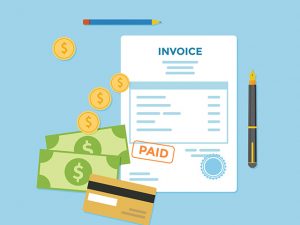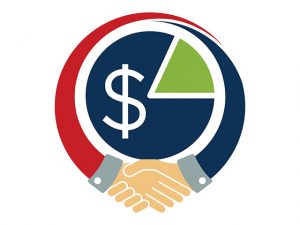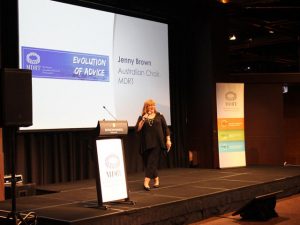This is a great article in which Slipstream Coaching’s Scott Charlton details ten errors you should avoid when collaborating with accountants. While many of you may already be avoiding some or even most of these ten errors, the range of areas that Scott covers and the way he talks about them demonstrates his obvious deep understanding of how accounting firms work and, very importantly, how accountants think...
Accountants are generally quite ruthless in rebuffing the numerous approaches they receive from advisers and providers. They will also quickly terminate discussions if they feel that a relationship is not worth pursuing. Ensure that your chances aren’t spoiled by avoiding these ten rookie errors when developing relationships with accountants.
1. Expecting the accountant to give you their client list and you’ll make lots of money
If you think that telling the accountant that it is vital for their clients to be insured, have a plan for their retirement or that you can assist them with the cheapest loan, then think again. The reality is the accountant may or may not agree with your assertion. More importantly, the accountant may not sufficiently trust you at this stage nor have confidence that you can do a good job. You are an untested commodity, so frankly, why should the accountant risk client relationships when you’ve not yet done anything to foster goodwill and confidence?
2. Not doing your research and going in cold to a first meeting
“So, what kind of work do you do here at ABC Accountants?” This is just a bad question and for the accountant, it is at the cost of otherwise chargeable time. To create a strong first impression and give yourself a much better chance of success, always be prepared by conducting the relevant research before meeting with an accountant. A thorough review of an accountant’s website before the initial meeting should be regarded as mandatory. Some of the other things that you should find out about include clients that you have in common, personal interests of the partners, if they have a PA and who their key team members are.
3. Playing the short game (i.e. get discouraged early and give up)
Often accompanied by other rookie errors, this is where an adviser hopes to obtain a referral or (even more unlikely) a referral relationship from the very first meeting with an accountant. As with all relationships, the best and most sustainable referral relationships usually emerge over time. This gestation period enables trust to be formed, test cases to be successfully negotiated and confidence in you to be developed.
4. Failing to account for the money (if in an income splitting arrangement)
Accountants take a dim view of errors and oversights. An error to avoid is presenting the accountant with the list of commissions from clients referred to you and have clients missing from that list. They will then extrapolate these into a conspiracy (“What else is missing?”) and a back-dated test case (“Couldn’t even get that right”).
5. Being unaware of tax deadlines that accountants are working towards
In Australia, 15 May is the final date for lodging tax returns for the previous financial year. In the weeks leading up to this deadline, many accountants are under considerable pressure to get these returns prepared. As a result, accountants will have less scope to meet with you and/or work on joint initiatives with statutory deadline looming. Best to find out when these are and work around them.
6. Assuming you are the first person to approach the accountant for referrals
Accountants are approached all the time, so you need strong credentials and good reasons for why they should refer to you.
7. Making a meeting with an accountant armed with nothing but hope
Closely aligned with the previous point, in order to have a valuable conversation, ensure that you have something interesting to say about how you can add value.
8. Promise to refer clients
Don’t promise what you can’t deliver. Besides, you are more likely to find that accountants assign higher priority to ensuring that you do a good job for the clients they refer to you than any clients you send to them.
9. Make basic errors in punctuality, spelling, calculations and dates
Accountants tend to view their value proposition in terms of technical excellence. The importance they place on precision is understandable:
- Telling a client to buy an asset in the family trust when it should have been in the super fund or vice versa could have significant tax implications
- Getting a calculation wrong may result in tax penalties
- Missing a deduction means that a client pays more tax than necessary
So, frustrating as it may be, accountants will judge you at least in part on the accuracy of your correspondence and calculations. To prevent these errors, ask a team member to proof read your documents and double check your numbers before sending anything to an accountant.
10. Refer the wrong type of client
An accountant specialising in business clients will understandably be puzzled if you persist in referring salaried clients with rental properties. This is an obvious one to steer clear of!
If you have been a culprit of making any of the above rookie errors, there are some suggestions to be implemented to ensure a more successful outcome for the next time you collaborate with an accountant. Try reflecting on ways in which the situations above could be handled better and incorporate this into your approach in pitching to accountants in the future. Or for each of the accountants you have unsuccessfully approached for referrals, go back through this list and see which ones applied.
Successful referral relationships with accountants almost always follow being professional, having a solid offering and avoiding these ten errors.

Scott Charlton is a Chartered Accountant and a director of Slipstream Coaching, a company dedicated to assisting financial practitioners achieve their potential. A long-term business coach to both accountants and financial planners, Scott is also the author of three books regarding professionals in practice. Scott can be contacted by phone 0409 870 330 or via email scott@slipstreamcoaching.com.au










